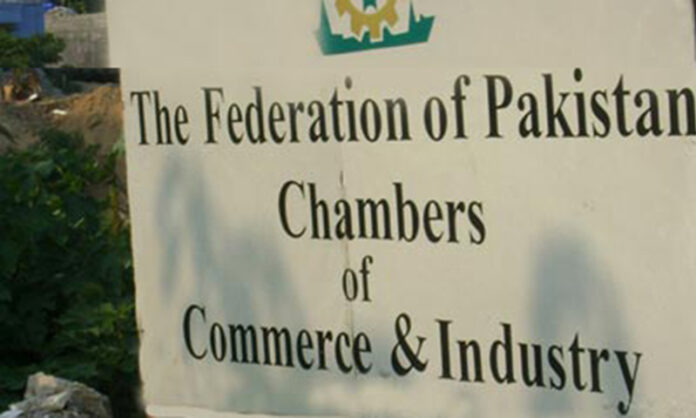ISLAMABAD: The Federation of Pakistan Chambers of Commerce and Industry (FPCCI) has requested the government to formulate strategies that could decrease the country’s dependence on traditional exports like textiles, leather, carpets, sports’ goods, stainless steel, surgical goods, rice etc.
In its budgetary proposals of the fiscal year 2020-21, the FPCCI stressed the need for alternate ways to enhance the country’s exports.
“Keeping in view the changing global needs, there needs to be a shift in the composition of Pakistani exports, which means promotion of high/medium technology exports,” the chamber stated.
In addition, the government should either reinstate zero-rating regime or reduce all input taxes, including packaging material, to 6pc-9pc for five export sectors, besides issuing refund claims within the stipulated time period.
“The government should also give 50pc air freight subsidy from EDF in order to make Pakistan’s exports competitive in the international market,” it stated. “Land routes to neighbouring countries (Iran & Afghanistan) should be strictly controlled to stop smuggling.”
Meanwhile, FPCCI noted that the prevailing non-tariff barriers have restrained the volume of Pakistan’s exports to China and EU.
Pakistani exporters are facing non-tariff barriers in safety and quality standards under the sanitary and phytosanitary (SPS) agreement. Sanitary and phytosanitary measures apply to trading commodities.
“There is also a need to shift from inward orientation to an outward looking economy as it puts a greater emphasis on exports to achieve high and sustainable growth. Pakistan should adopt different contours of an export oriented strategy in order to remain competitive in international market, especially with regards to countries like India and Bangladesh.”
The FPCCI said that Pakistan needs to penetrate the global synthetic products market which has overtaken cotton as synthetic/MMF; polyester fibre (PSF) in particular has substantially replaced cotton based fibre production. “But Pakistan still lags behind MMF-based production and as a result is limiting itself to only some products.”
The chamber mentioned that these proposals, if implemented, would create domestic demand suppression to promote local and foreign investments in export sectors.
BRANDING
The chamber, in its proposals, also emphasized upon the government to pay heed to the area of ‘branding’.
“There is a dire need that the government should implement early the Geographical Indication Protection Law after consultation with relevant federal and province ministries and holding awareness programmes for traders, industrialists and farmers to ensure registration and protection of their products, which will help in enhancing exports.
Therefore, brand development and special incentive packages should be provided for those exporters that are engaged in marketing their own ‘brands’ in international markets.”
SMEs’ FACILITATION
The FPCCI noted that the SME sector, which contributes 40pc to the GDP, constitutes 90pc of the enterprises, employs 80pc non-agricultural workers and adds 25pc to the overall exports, has been ignored by successive governments.
“SMEs are the backbone of our economy and are facing major challenges, especially pertaining to high utility charges, interest rate and complicated taxation.”
The chamber stated that in such a high interest rate environment, it is unlikely that the SMEs sector could trigger expansion or increase investment. SMEs are still under credit constraints due to challenges and unavailable opportunities for access to finance.
The State Bank of Pakistan provides refinancing facility for modernization of SMEs at mark-up rate up to 6pc (2pc SBP refinance rate and 4pc banks’ spread) but the commercial banks are reluctant to lend to SMEs.
In addition, the FPCCI highlighted, more than 150 licenses are required by provincial/local governments, different metropolitan corporations, municipal corporations, town committees to start a business.
“The process should be made easier and automated as the prevalent system only promotes corruption, harassment etc.”
The chamber said there is a dire need to focus on encouraging and facilitating the growth of cottage industries as well as small enterprises. The government must facilitate them with all basic requirements such as ease of tax and regulatory compliance for sustainable growth and to provide them infrastructure where it is required.
The government should design a policy based on a proactive strategy in full collaboration with SMEDA to reduce tax and regulatory burden on micro and small firms that impacts their cost of doing business.
It should also formulate a policy incorporated with favourable enactments in favour of small and medium enterprises in Pakistan which should be exempted from sales tax and FED and from burden of utilities charges such as electricity, gas and water charges for their ease to do business.
It was proposed that exemption be given from income tax for 5 years in order to boost and promote this sector.




